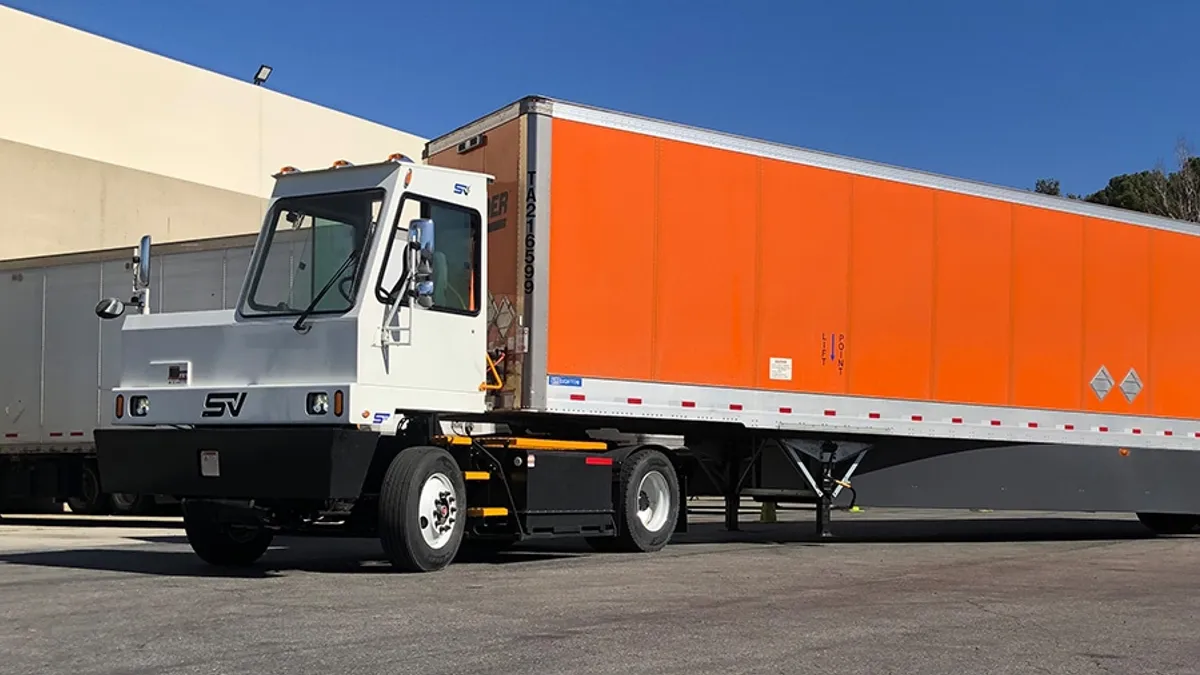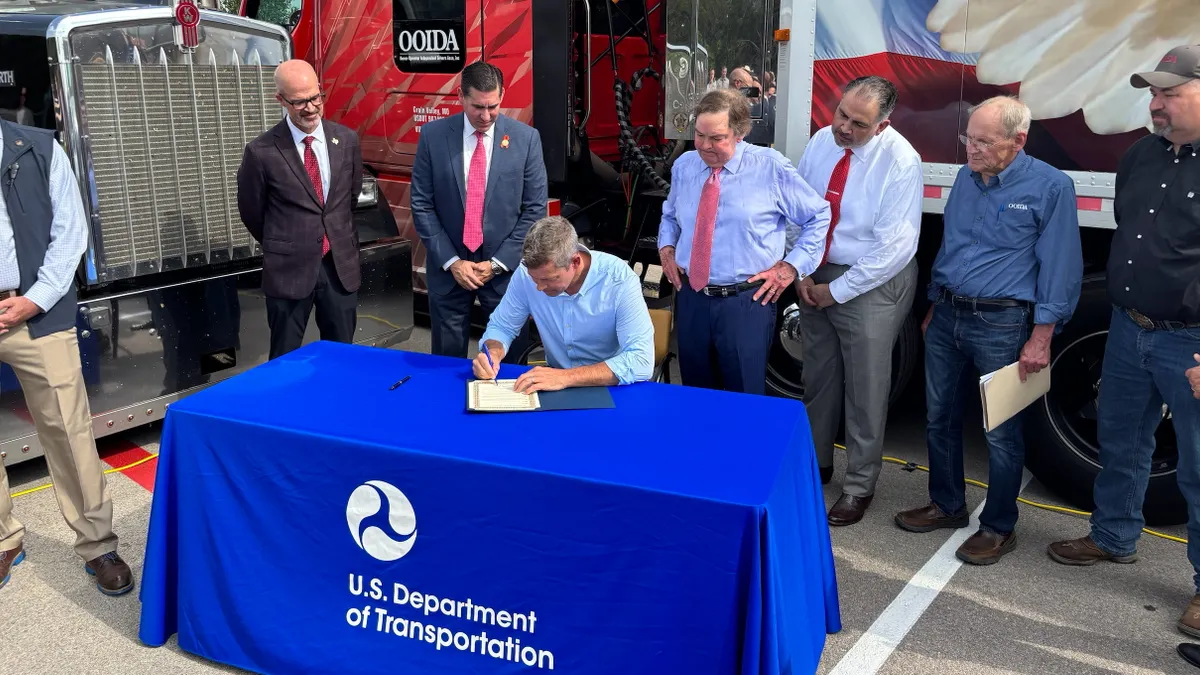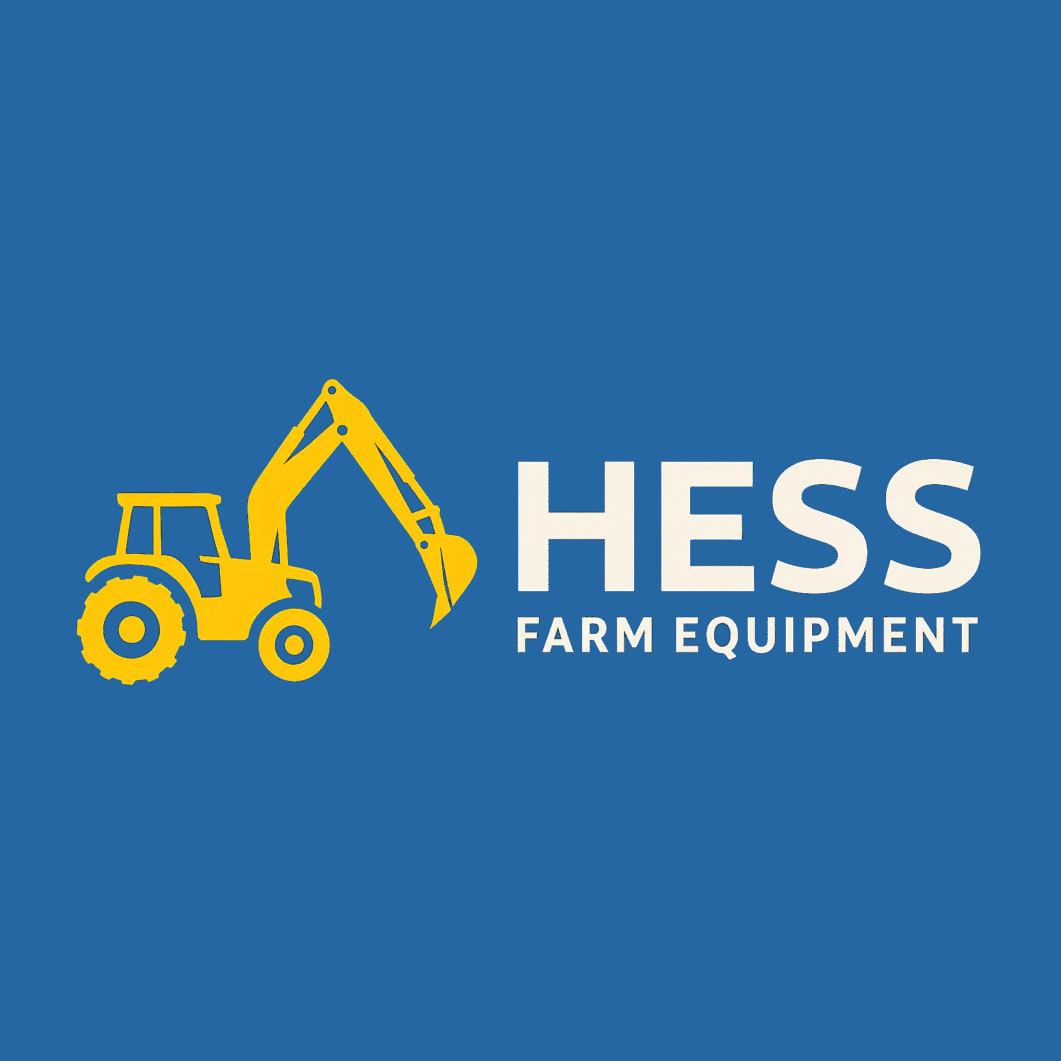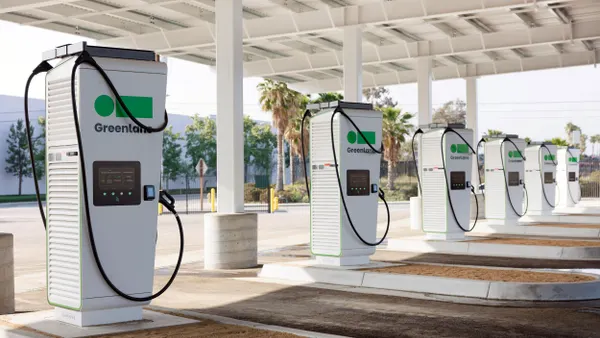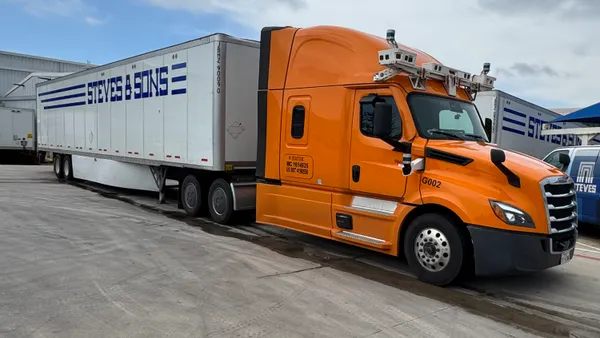Dive Brief:
- Schneider National’s strategy to ramp up use of electric trucks will likely depend on nationwide development of charging infrastructure and changes to heavy duty vehicle emissions rules, company executives said during an Aug. 2 earnings call.
- In recent months, the Wisconsin-based carrier has focused deployment of its EVs in Southern California, which has stringent emissions laws. Several states, D.C. and some Canadian provinces may soon follow suit as they write their own regulations.
- Despite the regulatory push for EV standards, Schneider expressed reluctance to commit more resources to the technology until there’s adequate charging infrastructure to match. “I still think there's not an answer, an adequate answer at this juncture for us to be thinking much broader in the short term because of the infrastructure concerns,” EVP and CFO Steve Bruffett told analysts.
Dive Insight:
Analysts during the call pointed to Schneider’s June opening of its California EV charging depot as a possible signal the trucking industry was poised to adopt broader use of the technology.
Bruffett acknowledged the company has moved past the EV testing phase, but for now, the new charging site is meant to serve the Schneider fleet's needs in the “short haul, high-density markets of Southern California.”
Schneider on Aug. 10 announced the debut of two electric Lonestar S22 terminal tractors to move trailers at its Rancho Cucamonga, California cross dock. The EV yard tractors replaced two diesel trucks and raised the company’s California-based EV fleet count to 94.
California’s new truck emissions rules take effect in January. Any new trucks hauling cargo at the San Pedro Bay ports must be zero-emission, which is the chief reason Schneider has focused its truck electrification efforts on its California intermodal and drayage operations, said EVP and Group President of Transportation and Logistics James Filter.
Filter told analysts during the call “the regulation in California is driving this adaptation of electric vehicles.”
“The end of this year will be the last time that we'll be able to bring a new diesel truck into that operation,” Filter said. “So, beginning next year, all new trucks will be battery electric vehicles as mandated … in California.”



